This article was co-authored by Trudi Griffin, LPC, MS. Trudi Griffin is a Licensed Professional Counselor in Wisconsin specializing in Addictions and Mental Health. She provides therapy to people who struggle with addictions, mental health, and trauma in community health settings and private practice. She received her MS in Clinical Mental Health Counseling from Marquette University in 2011.
There are 21 references cited in this article, which can be found at the bottom of the page.
This article has been viewed 92,429 times.
Bulimia is a serious and potentially life-threatening eating disorder. People with this disorder may eat large amounts of food, and then try to compensate by purging these foods later.[1] If you're bulimic right now, it's important that you seek professional help immediately. The longer you suffer from bulimia, the more damage you can do to your body, and the more difficult it can be to recover. Learn the steps you must take to cope with bulimia and recover from this deadly eating disorder.
Steps
Acknowledging the Seriousness of Bulimia
-
1Educate yourself about your illness. The only way you can truly understand the seriousness of bulimia is by learning more about this particular eating disorder. Bulimia nervosa is marked by excessive eating of large amounts of foods (in sometimes short amounts of time) and then later compensating for excessive calories by vomiting or taking laxatives. There are two types of bulimia nervosa:[2]
- Purging bulimia involves self-induced vomiting or abusing laxatives, enemas, and diuretics to compensate for a binge.
- Non-purging bulimia involves the use of other tactics to prevent weight gain such as restrictive dieting, fasting, or exercising excessively.
-
2Know the risk factors. If you are suffering from bulimia nervosa, there are probably certain characteristics about you, your thought patterns, or your life history that make you more susceptible to the disease. Common risk factors for bulimia include the following:[3]
- Being female
- Being an adolescent or young adult
- Having a family history of eating disorders
- Falling into societal ideals of thinness perpetuated through the media
- Dealing with psychological or emotional issues, such as poor self-esteem, poor body image, anxiety, or chronic stress; or dealing with a traumatic event
- Being consistently pressured by others to perform or be perfect as in athletes, dancers, or models
Advertisement -
3Be able to spot the symptoms. Those who suffer from bulimia, whether the purging or non-purging type, experience a unique set of symptoms. You, your family members, or close friends may have noticed some of the following signs and symptoms that you are dealing with this disorder:[4]
- Having a lack of control when it comes to eating
- Being secretive about your eating habits
- Switching back and forth between eating too much and fasting
- Noticing food disappearing
- Eating enormous amounts of foods without seeing changes in body size
- Going to the restroom after meals to purge
- Exercising a great deal
- Taking laxatives, diet pills, enemas, or diuretics
- Experiencing frequent weight fluctuations
- Demonstrating chipmunk cheeks due to vomiting repeatedly
- Being overweight or average weight
- Demonstrating discolorations on teeth from throwing up stomach acids
-
4Recognize that the disease can be life-threatening. There are many dangerous consequences to bulimia nervosa. Purging behaviors can result in dehydration and electrolyte imbalances that can ultimately lead to irregular heartbeats, heart failure, and even death. Regular vomiting can also rupture the esophagus.[5] [6]
- Some people with bulimia use ipecac syrup to cause vomiting. This syrup can pool up in the body, causing cardiac arrest, or even death. [7]
- Beyond the physical risks associated with bulimia, those who suffer from eating disorders are also at high risk of psychological problems, such as alcohol and substance abuse as well as suicide.[8]
Accessing Professional Care
-
1Admit that you need help. The first step to improving your bulimia is to accept the fact that you have a serious problem, and that you cannot overcome this issue on your own. You may truly believe that if you could only get your weight or eating under control, you could be happy. However, the only way you can get better is to admit you have an unhealthy relationship with food and your body. You must open your eyes and heart to the possibility of recovery.
-
2See a doctor. To start the recovery process, you must see a doctor. Your doctor can provide a thorough exam and assess your bloodwork to determine how much damage your body has endured. He can also help you and your loved ones determine the level of care needed to help you recover.[9]
-
3Get referred to a eating disorder specialist. Your primary care doctor is not sufficient to treat bulimia on her own. After you get an initial evaluation, she will likely refer you to a community resource who has a special background in treating eating disorders. This professional may be a licensed therapist, psychologist, or psychiatrist.[10]
-
4Participate in therapy. An effective treatment plan for overcoming bulimia will focus on helping you identify and avoid triggers, manage stress, build a better body image, and address any psychological or emotional issues that contributed to the eating disorder.[11]
- Research has shown cognitive behavioral therapy to be one of the most effective treatment approaches for bulimia.[12] In this type of therapy, patients work with the therapist to challenge unrealistic thought patterns about their appearance and bodies and develop healthier relationships with food.[13] Find a cognitive behavioral therapist specializing in eating disorders for the best chance at recovery.
-
5Receive nutritional counseling. Another aspect of your bulimia recovery will be meeting with a registered dietitian. The dietitian will help you determine how many calories and nutrients you should consume each day and work with you to adopt healthier eating behaviors.[14]
-
6Join a support group. A common complaint of many people battling psychiatric disorders like bulimia is not having anyone who understand what you're going through. If you feel similarly, it can be comforting to participate in local or online support groups catered to bulimia sufferers.[15]
- Your parents or other loved ones may also benefit from taking part in a support group for families. In these meetings, participants may discuss and learn how to care for you better and foster a successful recovery.
Managing Your Symptoms
-
1Share your story. Eating disorders are frequently kept secret from those around you. Breaking out of this rut means talking to someone about what you're thinking, feeling, and doing each day. Find a good, nonjudgmental listener who is willing to offer you support and possibly be an accountability partner.[16]
-
2Monitor your nutrition. Recovery from bulimia will require regularly meeting your dietitian and working at home to make sure you are meeting your nutritional needs. Learning to listen to your body to recognize what is hunger and what is an emotional need, such as loneliness or boredom, are huge aspects of nutritional therapy for bulimia. Your dietitian can also guide you in selecting foods that will satiate your hunger and prevent your need to binge.[17]
-
3Learn alternative coping strategies. Think of your coping skills as a toolbox or arsenal - the more behaviors you pack inside, the better equipped you are at fighting bulimia. Get together with both your therapist and dietitian to brainstorm ideas for coping strategies. A few suggestions are as follows:[18]
- Get involved with a hobby or passion to boost your self-esteem
- Phone a friend when faced with a trigger
- Connect with a friend from an online support group
- Make a list of positive affirmation to read aloud
- Walk or play with your pet
- Start a gratitude journal
- Read a book
- Get a massage
- Exercise, if appropriate for your treatment plan
-
4Avoid triggers. As you participate in therapy and support groups you will gain more insight into the things that trigger a binge cycle. Once you have identified these things, stay away from them, if at all possible.[19]
- You might need to throw away your scale, toss out fashion or beauty magazines, unsubscribe from pro-mia websites or forums, and spend less time with friends or family members who regularly bad-mouth their bodies or obsess about dieting.
Developing a Positive Body Image
-
1Exercise for an improved mood. Regular physical activity boasts many known benefits like greater immune functioning, improve cognitive functioning, better attention and concentration, reduce stress, boost self-esteem, and enhance mood . Some research has shown that healthy amounts of exercise can, too, be beneficial for those recovering from eating disorders, and even prevent eating disorders.[20] [21]
- Be sure to talk to your treatment team before starting an exercise regimen. For the non-purging type of bulimia, exercise may be inadvisable if it is used to work off post-binge calories. Work with your doctors to determine if exercise is a good choice for you.[22]
-
2Change your thoughts about dieting and weight. Having dysfunctional thoughts about your body and a negative relationship with food are two of the largest contributors to bulimia nervosa. Overcoming these thinking patterns is necessary for recovery. Instead of falling into these negative thinking patterns, try to change your responses and be kind to yourself like you would be with a friend. By changing your responses, you may start to view yourself with more compassion. Common thinking errors affecting those with eating disorders include:[23] [24]
- Jumping to conclusions: "Today was hard; I will never overcome this eating disorder." Expecting the worse can be destructive to all the positive changes you are making. Instead say something like this "Today was hard, but I got through. I only need to take it one day at a time."
- Black and white thinking: "I ate junk food today. I'm a total failure." Thinking in extremes and believing that things are either completely right or wrong can quickly prompt a binge, if you're not careful. Instead, try telling yourself, “I ate junk food today, but that's okay. I can enjoy junk food once in a while and still eat healthfully. I will have a healthy dinner tonight.”
- Personalization: "My friends don't want to hang out with me anymore because I'm too health-conscious." Reading into others' behavior and taking it personally is unfair to them. Your friends may just be busy or want to give you space to heal. If you miss them, reach out and say so.
- Overgeneralization: "I always need help." Applying a negative pattern to your life is self-defeating. You can probably come up with tons of things you can do with out help. Try that now.
- Shoulds, coulds, woulds, musts, have tos: "I have to be the one with the best form in practice today." Such rigid thinking is irrational and limiting. Even if you do not have the best form, it does not discount that your form is still great.
-
3Reestablish a sense of self-worth unrelated to your body. It's time to rethink your belief that your worth is connected to your body shape, size, or weight. Stop tearing yourself down and build yourself up by connecting your self-worth to other characteristics.
- Dig deep and look for other non-body or appearance related things that you like about yourself. List out your very best qualities. For example, you might say because "I am smart" or "I am a fast-runner" or "I am a good friend".
- If you have trouble thinking of ideas, enlist your best friends or close family to help. Ask them to give you a few things they like about you that are unrelated to appearance.
-
4Focus on self-compassion. Over the past weeks, months, or years you have been unkind to yourself. Replace this neglect with an abundance of self-love and compassion.[25]
- Give yourself a hug. Watch your favorite movie or read your favorite book. Swap out negative self-talk with positive statements about yourself. Be nice to your body by getting a massage, a facial, or a manicure. Wear clothes that you feel comfortable in and that fit you - don't hide beneath your clothing. Be gentle and nurturing by treating yourself as you would your best friend.
Warnings
- Bulimia has serious long-term consequences. Even recovered bulimics are at great risk of developing cancers of the mouth and throat.[26]⧼thumbs_response⧽
References
- ↑ https://www.eatingdisorderhope.com/information/bulimia
- ↑ https://www.eatingdisorderhope.com/information/bulimia
- ↑ http://www.mayoclinic.org/diseases-conditions/bulimia/symptoms-causes/dxc-20179827
- ↑ https://www.hopkinsmedicine.org/health/conditions-and-diseases/eating-disorders/bulimia-nervosa
- ↑ https://www.nationaleatingdisorders.org/learn/by-eating-disorder/bulimia
- ↑ http://goaskalice.columbia.edu/answered-questions/dangers-bulimia
- ↑ http://www.ncbi.nlm.nih.gov/pmc/articles/PMC3550246/
- ↑ http://www.mayoclinic.org/diseases-conditions/bulimia/symptoms-causes/dxc-20179827
- ↑ https://www.nlm.nih.gov/medlineplus/ency/article/000341.htm
- ↑ http://www.helpguide.org/articles/eating-disorders/eating-disorder-treatment-and-recovery.htm
- ↑ http://psychcentral.com/lib/treatment-for-bulimia/
- ↑ http://www.apa.org/monitor/mar02/promising.aspx
- ↑ http://psychcentral.com/lib/treatment-for-bulimia/
- ↑ https://www.hopkinsmedicine.org/health/conditions-and-diseases/eating-disorders/bulimia-nervosa
- ↑ https://www.helpguide.org/articles/eating-disorders/eating-disorder-treatment-and-recovery.htm
- ↑ http://www.helpguide.org/articles/eating-disorders/bulimia-nervosa.htm
- ↑ https://www.mayoclinic.org/diseases-conditions/bulimia/diagnosis-treatment/drc-20353621
- ↑ https://eatingdisorderfoundation.org/learn-more/about-eating-disorders/coping/
- ↑ http://www.helpguide.org/articles/eating-disorders/bulimia-nervosa.htm
- ↑ http://news.ufl.edu/archive/2011/01/uf-study-exercise-could-help-prevent-treat-eating-disorders.html
- ↑ http://www.ncbi.nlm.nih.gov/pubmed/21584914
- ↑ http://www.mayoclinic.org/diseases-conditions/bulimia/manage/ptc-20179883
- ↑ http://blogs.psychcentral.com/weightless/2011/10/cognitive-distortions-that-contribute-to-negative-body-image-eating-disorders/
- ↑ http://www.eatingdisorderhope.com/recovery/self-help-tools-skills-tips/overcome-negative-thinking
- ↑ https://www.psychologytoday.com/us/blog/bottoms/201609/self-compassion-in-eating-disorder-recovery
- ↑ http://www.ncbi.nlm.nih.gov/pmc/articles/PMC2213673/
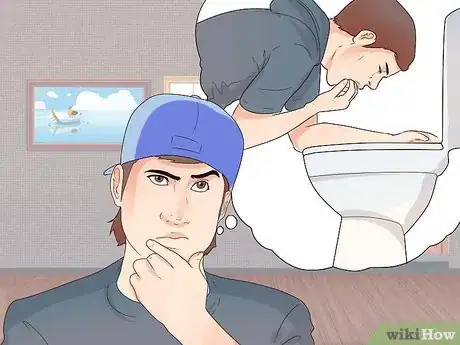
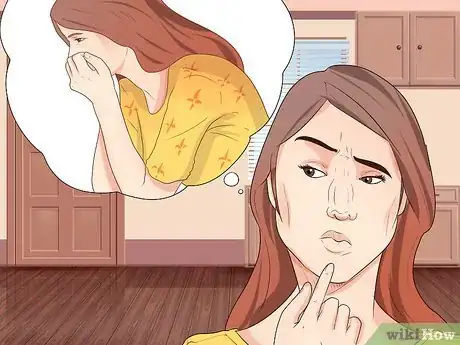
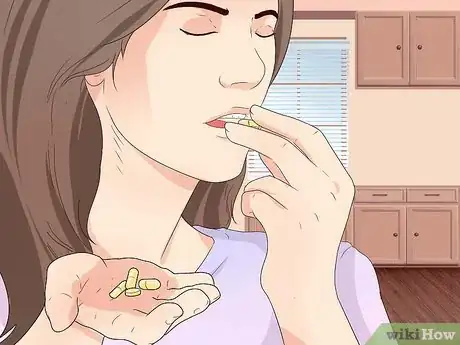
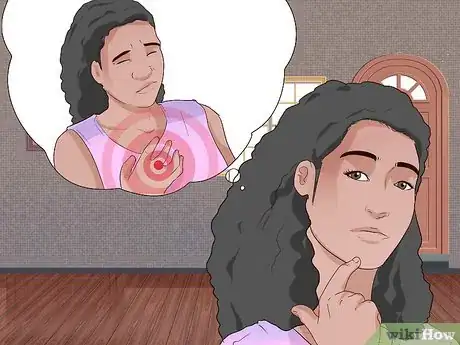
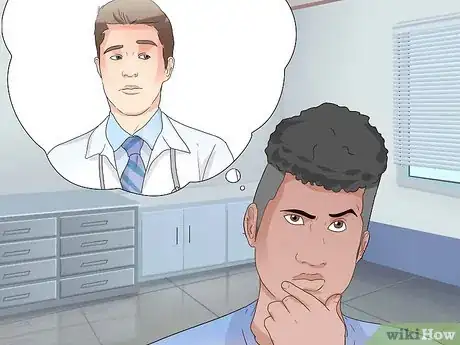
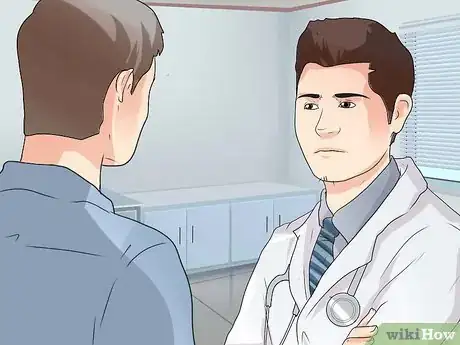
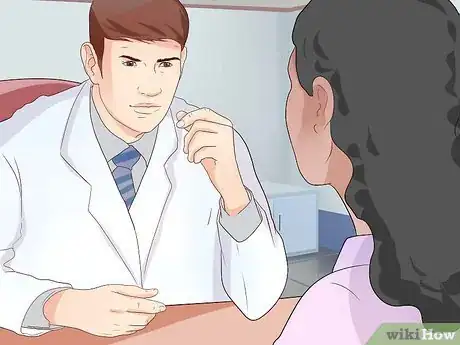

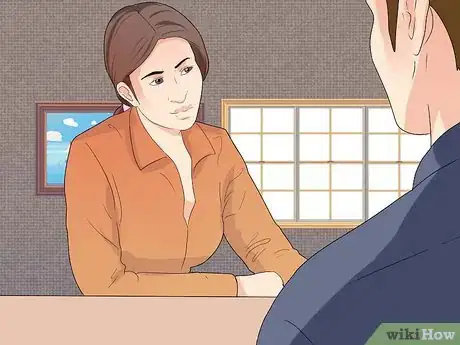

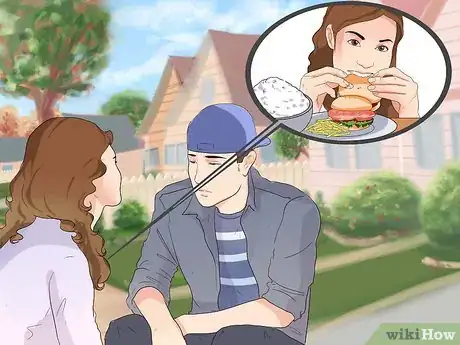
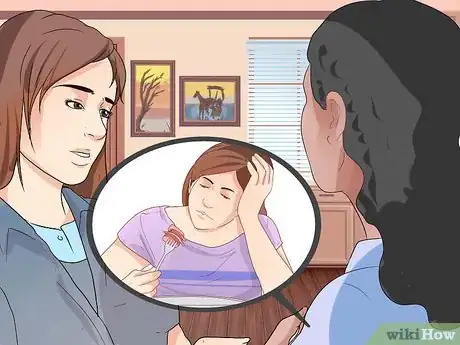
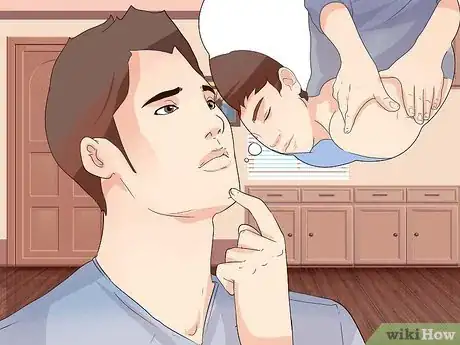
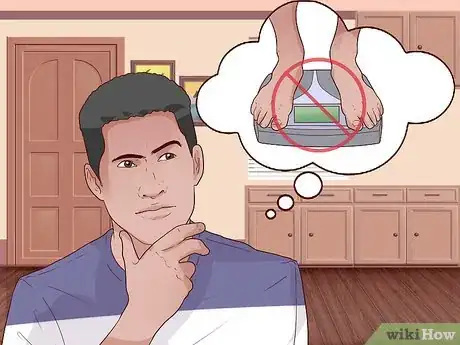

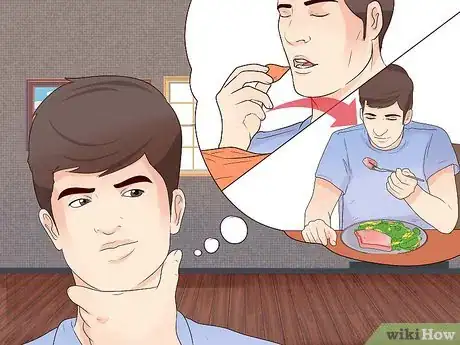







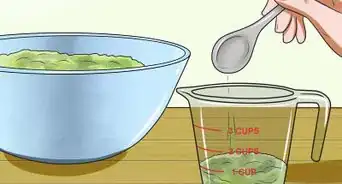
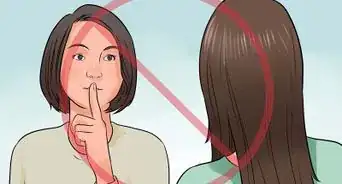

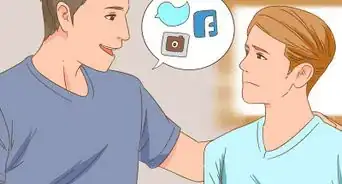



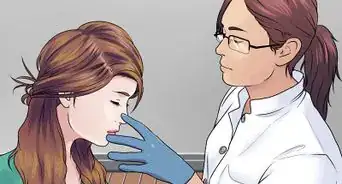
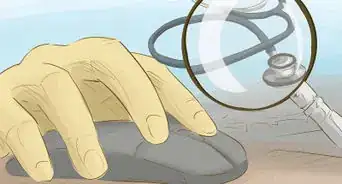















































Medical Disclaimer
The content of this article is not intended to be a substitute for professional medical advice, examination, diagnosis, or treatment. You should always contact your doctor or other qualified healthcare professional before starting, changing, or stopping any kind of health treatment.
Read More...